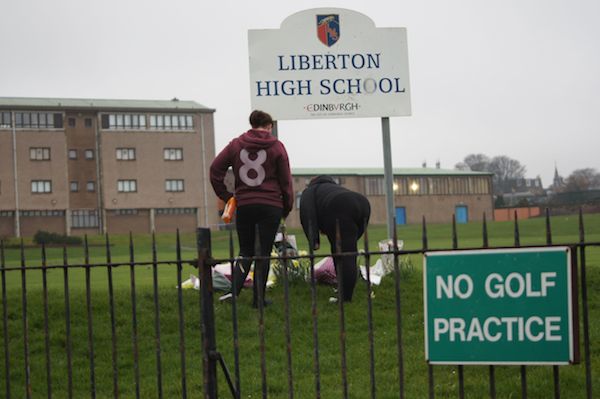Letter from Scotland

All good things must come to an end. I suppose all bad things do as well but this year’s Edinburgh Festival has, I think, been a good one and will go out in a blaze of glory with the traditional firework display on Monday evening. Several festival veterans have assured me it’s been the “busiest yet” and certainly I’ve had more “sold out” disappointments this year than ever before when I’ve tried to buy tickets at the last minute.
The fall in the value of the pound, due to Brexit, has brought in more foreign visitors and the 70th anniversary of the festival has added to its appeal. The weather has been kind, mild with occasional showers, and the city authorities have handled the invasion well, clearing up as the messy carnival went along.
Now the ticket offices and pubs, restaurants and hotels are counting the takings and wondering if they will exceed last year’s. They’re up by 5 per cent seems to be the consensus, which means nearly 3m tickets were sold for 3,500 shows and something like £250m has been pumped into the Scottish economy. It is the still the biggest and best show on earth.
There’s been plenty of controversy on stage – Brexit and Trump supplying much of the raw material – and only some mild worries off-stage. Is the festival becoming too crowded for its own good ? Should it be spread over a longer period ? Is everyone being paid at least the minimum wage ? Where do we go from here ?
And one last burning question, is there too much comedy ? At 35 per cent of fringe shows, I think there is too much and a lot of it pretty childish. Here, for instance is the official “best joke” of the fringe, from the Chinese comic Ken Cheng: “I’m not a fan of the new pound coin, but there again I hate all change.”
So let’s not get carried away with all this metropolitan arty stuff. Dull Scottish life goes on in the background. We’ve been having our annual argument over the figures on public spending. They show a deficit of £13.25bn between the amount the UK and Scottish governments spent last year in Scotland and what they raised in taxes. That’s considerably more than the SNP had suggested in its independence white paper in 2014 (£5.5bn at most). The first minister Nicola Sturgeon explained that away by pointing out that no one had predicted the crash in North Sea oil revenues.
Another running argument has been the level of Scotland’s business rates. Retail and hospitality businesses have been complaining that the valuation system puts too much of the burden on them. Their case wasn’t helped when it emerged that Donald Trump’s golf resort at Turnberry has been given a rate rebate of £110,000. The debate went further into class-war territory when the government’s rates review, led by the former Royal Bank chairman Ken Barclay, suggested that private schools should be liable for local rates.
Talking of the socialist revolution, Jeremy Corbyn has been touring Scotland this week. He’s visiting some of the 18 marginal constituencies which Labour hopes to win back from the SNP at the next election. In the Western Isles, he promised that rural Scotland would not be forgotten when the revolution comes. In Glasgow he promised that Labour would build more affordable homes and would tackle poverty and inequality.
One issue he might like to look at is “self-directed support”. This was supposed to be a revolution in how the care services were delivered. Councils would hand over money to the old and sick so they could hire their own carers rather than rely on the council’s care services. But a report out this week found that, after seven years of so-called operation, very few people were being offered the choice.

He might also like to inquire into cost-cutting in school construction. A Sheriff’s inquiry has found that a free-standing wall in a school gym just up the road from my house in Edinburgh was “inherently unsafe” and pupils were able to weaken it by bracing themselves between it and a neighbouring wall.
The sad result was that, in April 2014, the wall collapsed and killed a 12 year old girl, Keane Wallis-Bennet. The Sheriff said the fault would not have shown up on inspection and no one was to blame. But a warning has been issued about weaknesses in similar free-standing walls.
Finally, let me take any climate-change deniers there are left in Scotland to the top of Ben Nevis. For the first time in 11 years, Britain’s highest mountain has no snow patches on the summit or in any of the gullies. Indeed, according to a report to the Royal Meteorological Society, there are only three patches of snow on all of Scotland’s hills this August. How much evidence do we need to convince us that we should be doing something about our carbon emissions ?
All things, good or bad, must come to an end.